Open-source application creates super-resolution images of cell development in living animals
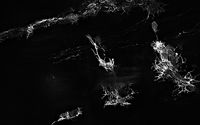
A new tool may allow researchers to see more of the physiological state of living organisms at the cellular level, according to a study by the University of Notre Dame. Published in Development, the study shows how an open-source application, created by Notre Dame researchers, can utilize two different conventional microscope images obtained at low excitation powers to create one high-resolution, three-dimensional image.
Researchers determine how nerve fibers enter spinal cord during early development

New research from Notre Dame could lead to regenerative therapies for people with injuries to their brachial plexus, a group of nerves that starts at the spinal cord and goes into the arm.
Notre Dame researcher honored for outstanding work in aquatic sciences
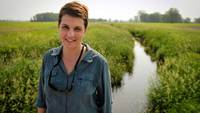
Jennifer Tank, the Galla Professor of Biological Sciences, has been honored with the 2019 Ruth Patrick Award from the Association for the Sciences of Limnology and Oceanography (ASLO).
Notre Dame receives its largest research award to study spatial repellents against mosquito-borne diseases
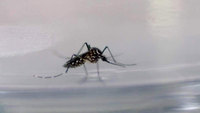
Notre Dame will lead a five-year program to determine the efficacy of a spatial repellent product in preventing mosquito-borne diseases such as malaria, dengue and Chikungunya.
Notre Dame researchers accepted to join vaccination impact research consortium
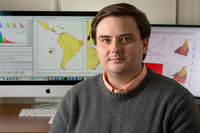
Alex Perkins, Eck Family Assistant Professor of Biological Sciences, and Sean Moore, research assistant professor of biological sciences, have been accepted to join the Vaccine Impact Modeling Consortium. The consortium “aims to deliver a more sustainable, efficient, and transparent approach to generating disease burden and vaccine impact estimates.
Notre Dame announces awardees of the Science of Wellness Catalyst Seed Grant Program
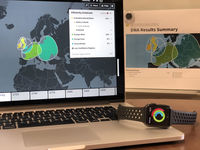
Sixteen faculty members from the University of Notre Dame have been awarded funding from the University’s Science of Wellness Initiative’s Catalyst Seed Grant program. Nearly 100 pre-proposals were submitted and faculty from five different colleges and schools received awards.
Study: Tuberculosis survives by using host system against itself
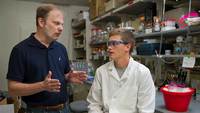
In a new study published in the Journal of Experimental Medicine, scientists at the University of Notre Dame have discovered that the pathogen Mycobacterium tuberculosis (MTB) releases RNA into infected cells.
Zhang lands DOD breast cancer research award

Siyuan Zhang, the Dee Associate Professor of Biological Sciences who is also affiliated with the Harper Cancer Research Institute, landed a nearly $1.1 million Breast Cancer Research Program Breakthrough Award through the Department of Defense in August.
The Graduate School Launches Training Program for Leaders Advancing Socially Engaged Research (LASER)
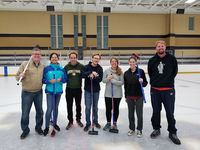
This year, the Graduate School launched a new experiential training program focused on leadership skills and social responsibility. Leaders Advancing Socially Engaged Research, or LASER, is aimed at Notre Dame doctoral students in their 3rd or 4th years of study, and is intended to complement students’ individual research pursuits in their various fields. This year’s cohort consists of seventeen students completing individual LASER projects and hailing from each of the Graduate School’s four academic disciplines (engineering, humanities, social sciences, and science).
Scientists neutralize reactive nitrogen molecules to enhance cancer immunotherapy

Immunotherapy — harnessing T-cells to attack cancer cells in the body — has given hope to patients who endure round after round of treatment, including chemotherapy, to little effect. For all of its promise, however, immunotherapy still benefits only a minority of patients — a reality driving research in the field for ways to improve the relatively new approach. One method for improving efficacy is the development of bio- and activity-based markers to better predict which patients will respond to immunotherapy and identify why some don’t. In a new study in the Proceedings of the National Academy of Sciences, researchers at the University of Notre Dame studying tumors in prostate cancer models found that nitration of an amino acid can inhibit T-cell activation, thwarting the T-cell’s ability to kill cancer cells.
Committee identifies priorities for nation’s future water resource challenges

Jennifer Tank, Galla Professor of Biological Sciences and director of the Notre Dame Environmental Change Initiative, served as one of 15 experts on the National Academies of Sciences, Engineering, and Medicine's Committee on Future Water Resource Needs for the Nation.
Notre Dame researcher to study dengue virus vaccine
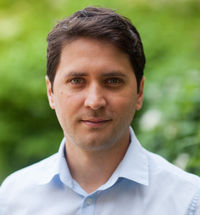
Guido Camargo España Guido Camargo España, postdoctoral research associate of biological sciences, has received a Postdoctoral Training Award in Translational Research from the Indiana…
Lu receives Susan G. Komen grant to study how breast cancer spreads

Xin Lu, the John M. and Mary Jo Boler Assistant Professor of biology, was awarded a 2018 Susan G. Komen research grant to identify potential new therapies for treating metastatic breast cancer.
Sophomore biology student spends summer in India doing research

During her first year at Notre Dame, Elsa Barron was on the lookout for a summer experience that would tie together her interests in science and international affairs. A biology and peace studies double major, Barron, now a sophomore, found what she was looking for in India after becoming Notre Dame’s first undergraduate Bose Scholar.
Lamberti honored as a Fellow of the Society for Freshwater Science
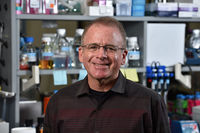
Ask Gary A. Lamberti, professor in the Department of Biological Sciences, to name his favorite creature, and it takes him only a few seconds to think before saying, “a caddisfly larva” or, as it is known in science circles, Helicopsyche borealis. He not only mounted a drawing of this common but extraordinary bug on his office wall in the Galvin Life Science Center, but also had it embroidered on baseball caps worn by his students. His enthusiasm hasn’t gone unnoticed by his peers. Lamberti recently was elected as a fellow of the Society for Freshwater Science, the leading international freshwater organization. The distinction recognizes sustained excellence in contributions to freshwater science, research, policy, or management. Lamberti, a member of the society for 35 years and president in 1998, said it is very rewarding and a particular honor to be recognized for his work.
Neuroscience professor earns Frank O'Malley Undergraduate Teaching Award

Nancy Michael, assistant teaching professor in the Department of Biological Sciences and director of undergraduate studies for the neuroscience and behavior major, earned the 2018 Frank O'Malley Undergraduate Teaching Award, an annual prize that honors any faculty member who displays “outstanding service to the students of the Notre Dame community.”
Eck Institute for Global Health announces new graduate student fellows
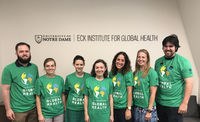
Seven University of Notre Dame graduate students have successfully received fellowships from the Eck Institute for Global Health (EIGH). The EIGH Graduate Student Fellowship Program was established to support students enrolled in the Notre Dame doctorate program who have an interest in global health research. “This fellowship program provides an opportunity for Notre Dame graduate students to work with our faculty and become more directly engaged in the fight for global health,” said Bernard Nahlen, director of the EIGH and professor of biological sciences. “I look forward to seeing how these young researchers develop their own skills and interests to contribute to better health for everyone, everywhere.”
What makes a good malaria vector?
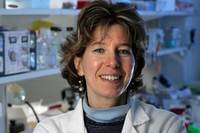
Nora J. Besansky, the O'Hara Professor and Associate Chair in the Department of Biological Sciences, hypothesizes in a recent paper in the Proceedings of the National Academy of Sciences that if scientists can understand what makes a small group of Anopheles mosquito a strong malaria vector, then perhaps we can prevent the spread of disease.
Jenna Davidson wins AAUW Fellowship

Jenna Davidson recently won an American Fellowship from the American Association of University Women (AAUW), a group aiming to empower women and girls through research, scholarship, and community projects.
Hackathons may accelerate scientific discovery, study finds
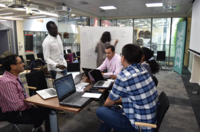
From interdisciplinary teams to multi-institutional partnerships, collaborations in research have become commonplace. However, these interactions are often made up of siloed teams who pass information along a pipeline rather than operating cohesively. In a new study, researchers have shown how hackathons, or other crowdsourcing events, may provide a good strategy for building bridges over the traditional divides of research partnerships and accelerate scientific discovery.